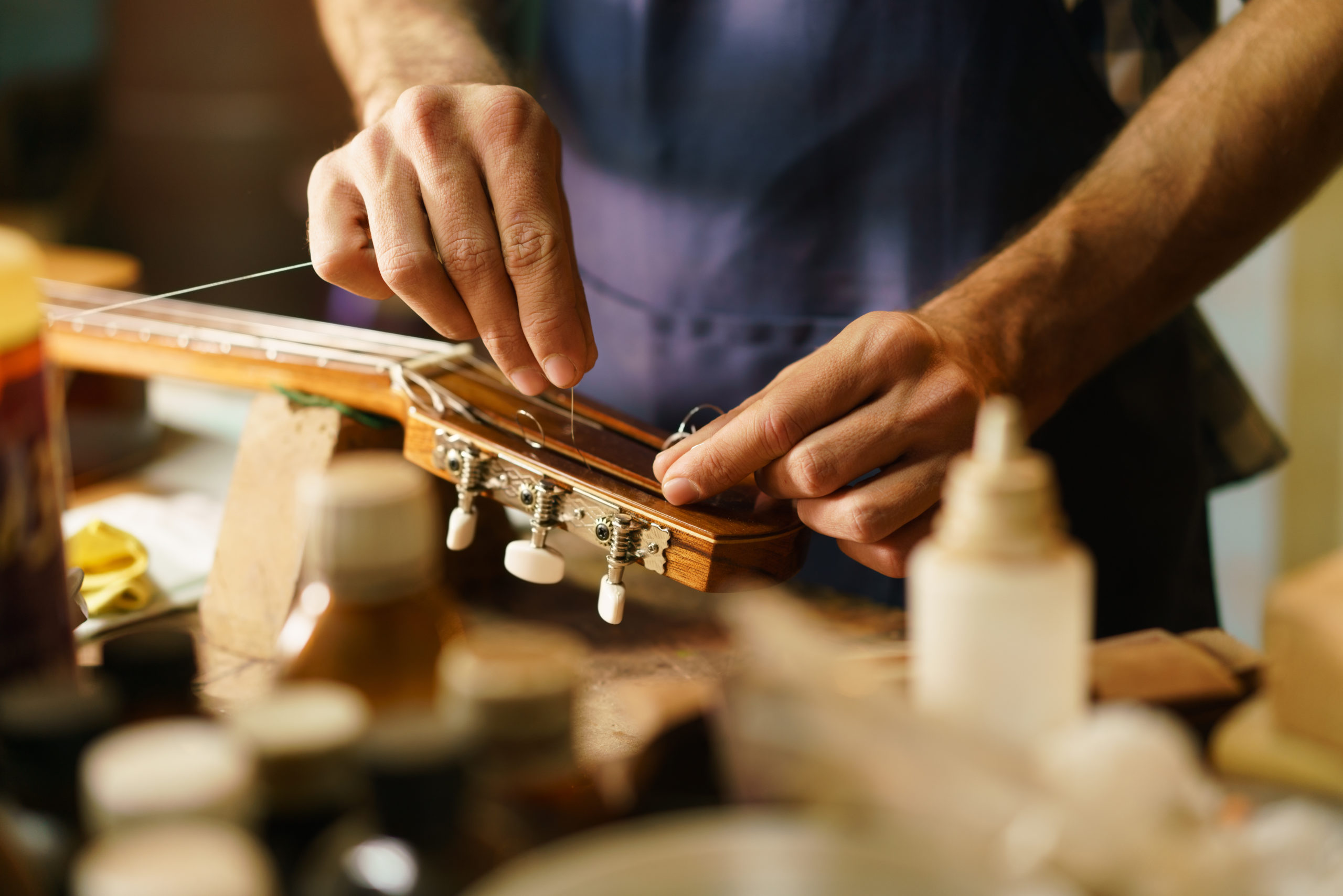We all know that music can have a tremendous impact on those going through recovery. In fact, we even have our own multi-instrumentalist on staff to help people at our facility achieve sobriety. But there is another emerging trend that takes this experience even further. And that is the process of building your own wooden guitars to play. Believe it or not, six string construction is becoming a valuable recovery tool and was even featured in a leading article on the CNN website.
CNN’s piece focused on a program based in Lexington, Kentucky. In partnership with an organization called the Appalachian Artisan Center, several formerly addicted patients have found inspiration through carpentry and music. Earl Moore is a prime example of the movement’s success and spoke to CNN about his new musical passions.
“You don’t realize what you’re capable of until you’re able to produce something in an artistic form,” Moore explained in the article. “Art and music release something deep inside you don’t know you have.”
Moore has now been sober for over eight years and turned this recovery passion into an entirely new career. As of 2020, he has crafted more than 70 instruments; advancing beyond guitars to include banjos, dobros and mandolins. With the ever increasing demand for this program, the Appalachian Artisan Center has brought on an entire “Culture of Recovery” division at its facility. And the movement has gotten so popular, that they have expanded craftsman classes to include pottery and even blacksmithing.
Hundreds of people have now taken part in the program and, as CNN reports, the concept is being adopted by dozens of recovery organizations across the United States. Appalachian Artisan spokesperson Doug Naselroad also spoke with the site, describing how the craftsman projects phase in to the treatment experience.
“What we do is we accept people into our studios when they’ve phased into a place where that’s useful to them; when they’re ready to come out into the light of day,” Naselroad explained. “The guitars that are made here, the mandolins that are made here — each one of them has a piece of the life of these individuals in recovery made right into them. And so, in the end result, you have an instrument that’s got a lot of life in it.”
Indeed, these passion projects can serve many purposes. There’s the rewarding moment when you finish building your instrument, but the journey continues as you learn to master your playing and build an ongoing creative outlet.







